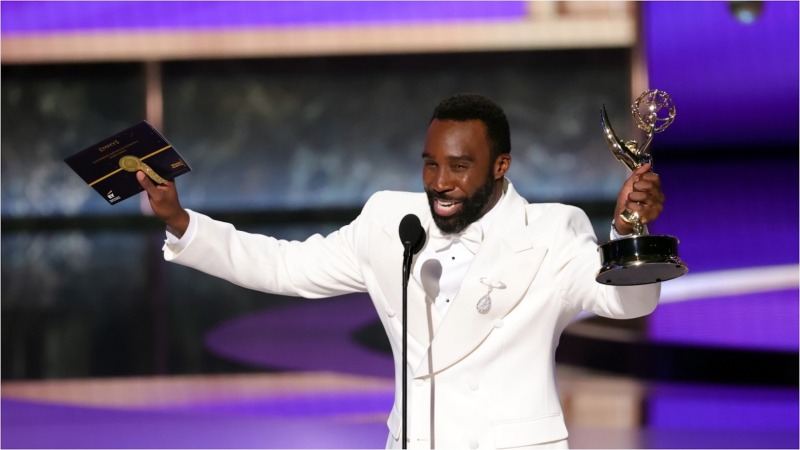2025 Emmy Awards Roundup: The Good, the Bad, and the Why?
(Photo by Kevin Winter/Getty Images)
It’s time once again: Hollywood’s biggest night is back. The 77th Primetime Emmy Awards aired on CBS, hosted by Nate Bargatze. Like every Emmys, there were some well-deserved wins, shocking upsets, and studio-sponsored presenter pairings (now we all know Jason Bateman and Jude Law will be in a TV show together).
But whether you want to reminisce about those three hours of television you just watched or you want to catch up by reading the highlights, Paste Magazine is here to run through the best, the worst, and the why of the 2025 Emmy Awards.

Nate Bargatze’s Mixed Bag Hosting Duties
Bargatze was a solid choice as a host. His turns on Saturday Night Live helped catapult him to fame, and he has a unique comedy persona. But in practice, his time as host at the Emmys was filled with hits and misses. The best hit: his opening sketch about the invention of television with SNL cast members Bowen Yang, James Austin Johnson, and Mikey Day. It played to all four actors’ strengths and provided a fun way to poke fun at TV (although I will admit, “The Bear isn’t a comedy” jokes are getting a little old now). And while I love a showman as a host for the Oscars, the Emmys are often a great stage for slightly weirder comedians.
However, Bargatze’s nervous persona never felt quite at ease with the structure of the broadcast. I’m all for a more natural performance, but he seemed too uncomfortable all night. He didn’t want to commit to being fully awkward, but he seemingly already decided he was going to stick with his off-kilter personality. By the end of the show, it felt like Bargatze didn’t know why he was still there. The end result was another host that faded to the background. Coupled with some of the most wooden award presenters I’ve ever seen at the Emmys, who struggled through some not very well-written bits, this year’s show felt especially rudderless.

Hey, Maybe Don’t Make People Feel Evil About Their Long Speeches?
Every award show has to do a bit centered around how acceptance speeches are too long. Part of it is utilitarian; these broadcasts can get fined or mess up the rest of their network’s programming for the night if the show runs long. For the 77th Emmys, the joke was that Bargatze would take $1000 from an original donation of $100,000 for the Girls & Boys Clubs of America for every second a speech ran long, or add $1000 for every second they had to spare. I did find Bargatze’s initial joke about threatening to take money away from charity funny. What was not funny was that the broadcast actually committed to the bit. Having the donation amount tick down in the corner of the screen when speeches went long was a step too far.
I think sometimes the people who write award shows lose track of what these shows are about. The Emmys are about celebrating the great work artists put into their craft. I understand that these shows are still content and that networks have rules to follow. But when you make the winners feel bad for jumbling their words or having lots of people to thank for helping them get to that great moment, it just feels mean-spirited.
Look, I knew during the whole show that the Girls & Boys Clubs would get that money regardless (in the end, it was actually $250,000 more than the $100,000 Bargatze originally announced). But those winners are so stressed out that they think they are being a nuisance for taking a few extra seconds. Even worse, it means that speeches often included references to how the winners felt bad for taking money away, further taking the moment away from their own accomplishments.

Love for The Studio, Not for Sal Saperstein
Big shocker: Hollywood loves The Studio. The Apple TV+ comedy series took home several major awards, including Outstanding Actor for Seth Rogen and Outstanding Comedy Series. The show also had many wins last week at the Creative Arts Emmys, when many people in their speeches thanked the fictional Sal Saperstein, an exec on The Studio who ends up getting thanked in several Golden Globe speeches in one episode. And yet, not a single speech after a win for The Studio during the main broadcast thanked Sal Saperstein.
-

-

-

-

-

-

-

-

-

-

-

-

-

-

-

-

-

-

-

-

-

-

-

-

-

-

-

-

-

-

-

-

-

-

-

-

-

-

-

-








































